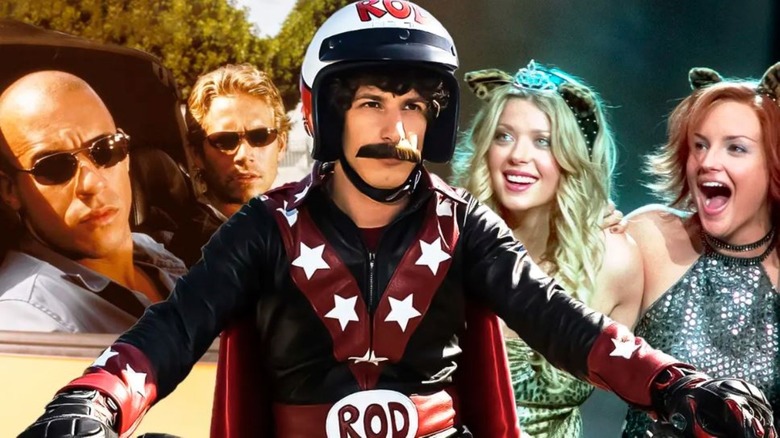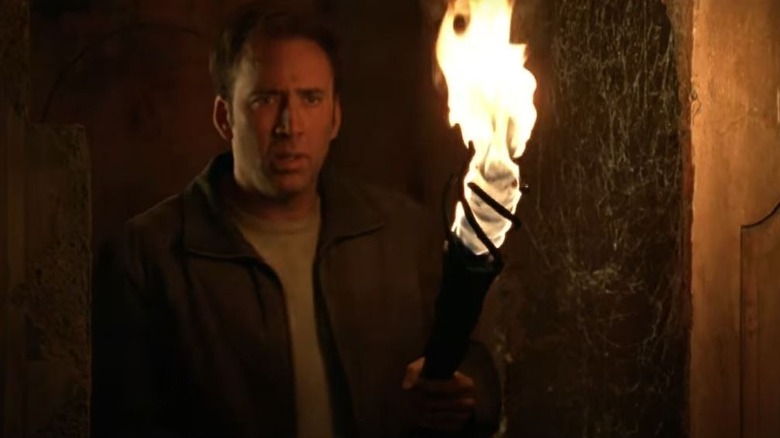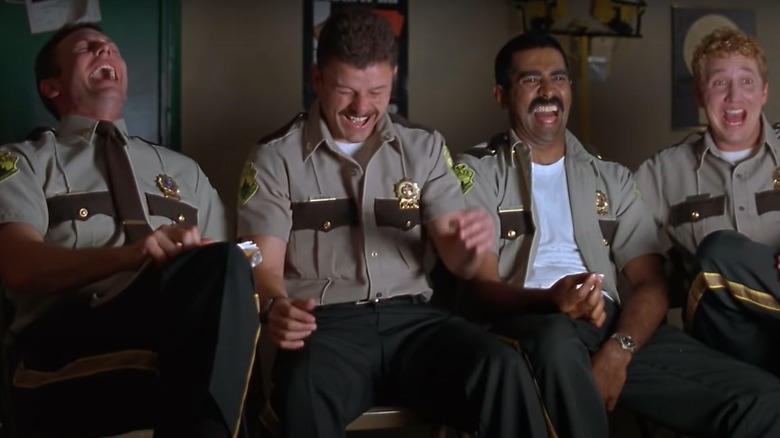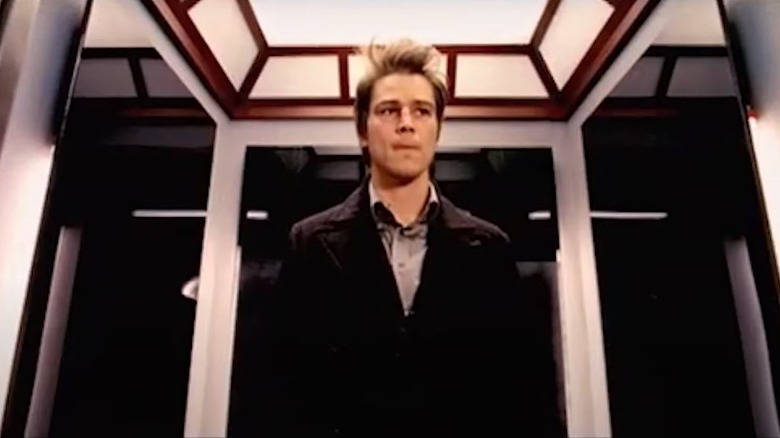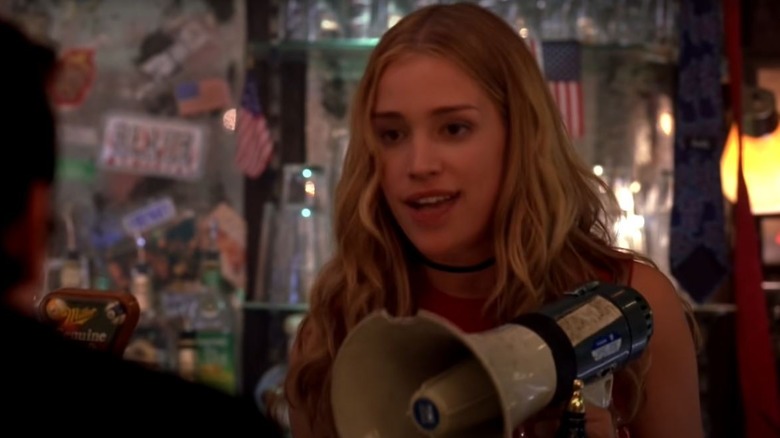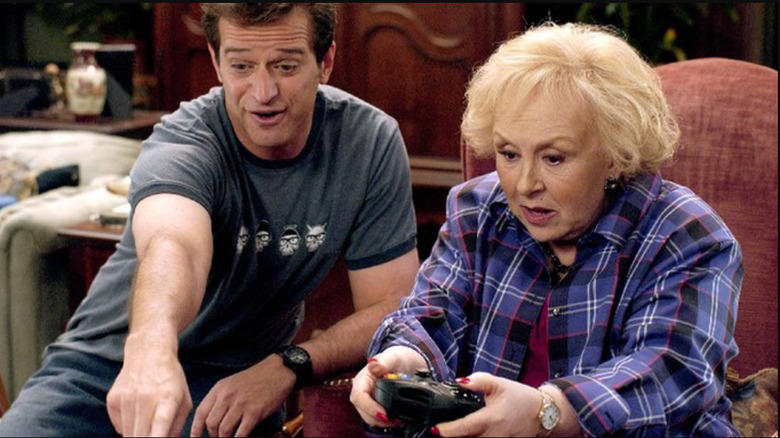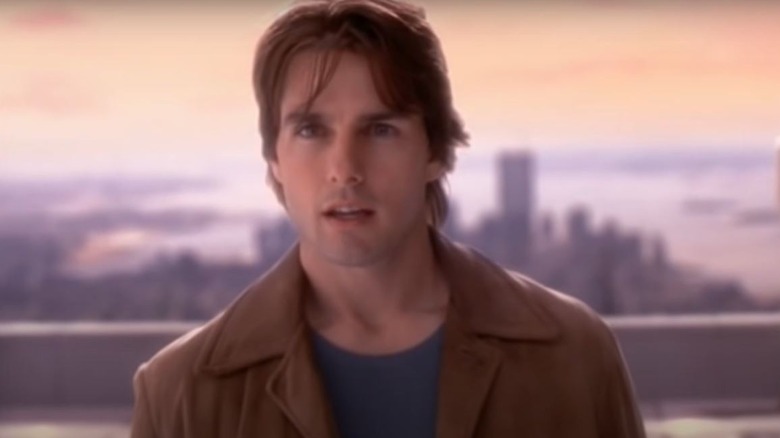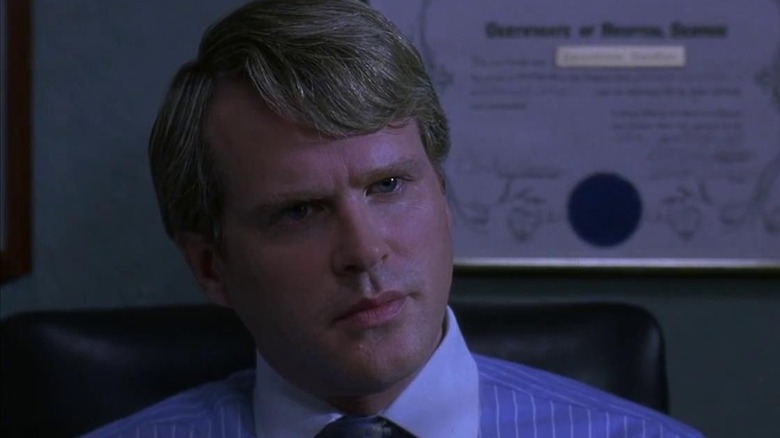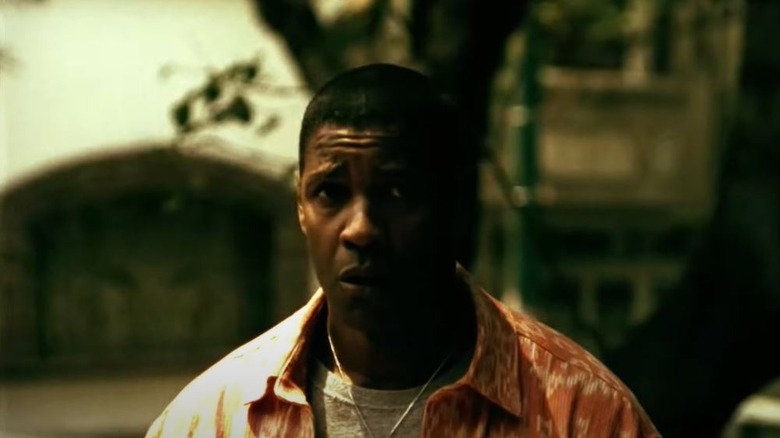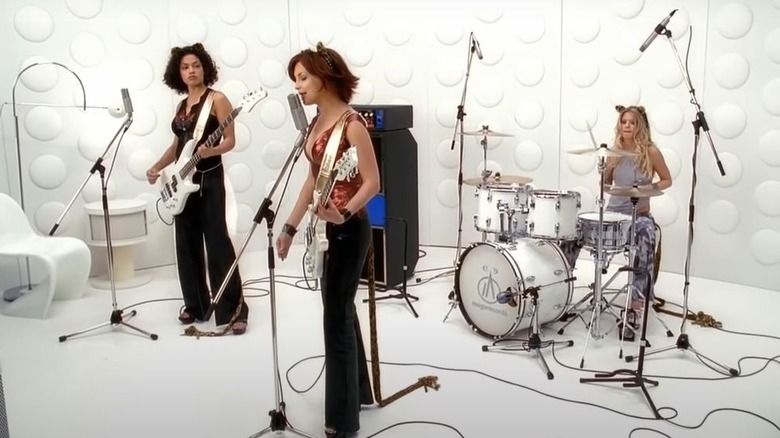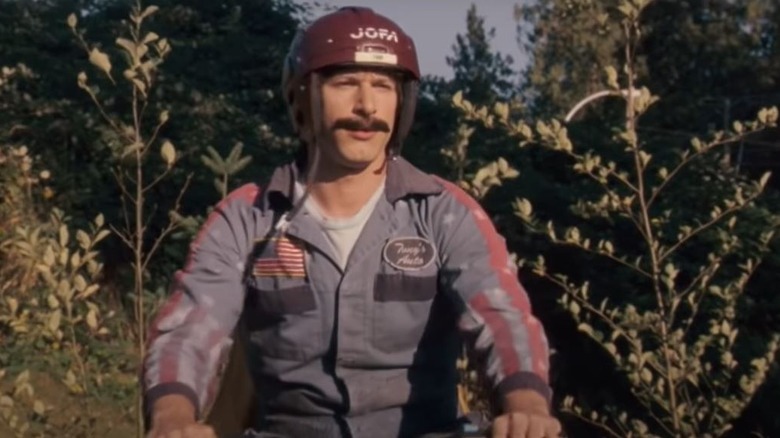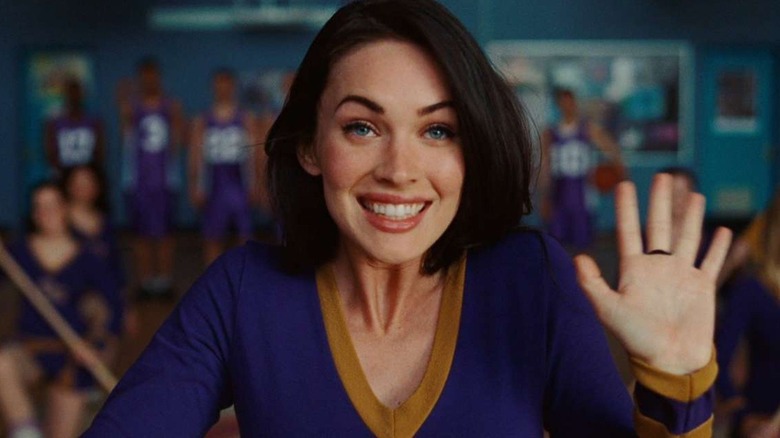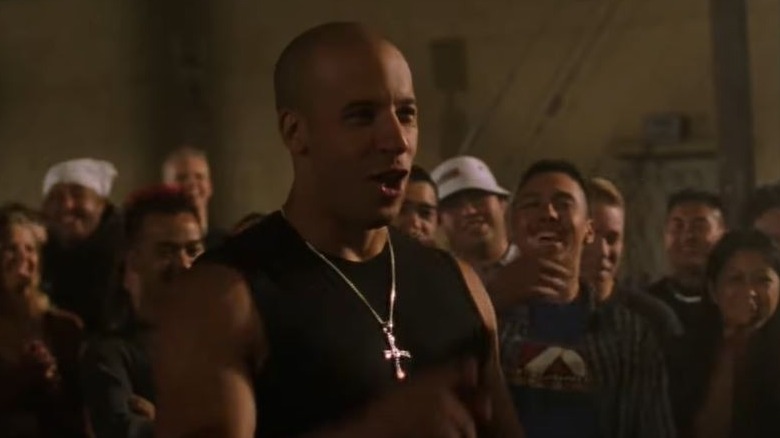2000s Movies Where The Critics Got It All Wrong
Critics and reviewers are an essential connection between the movies and audiences. Receiving some of the first looks at new films, it is the critic's job to distinguish a movie's value and merit and communicate their findings to potential viewers. Like any other art form, cinema is a spectrum of quality whose audience can be diverse. Critical reviews can help people decipher the type of content that they give their time and money.
Unfortunately, film criticism is ripe with subjectivity and biases. There is no instruction booklet for what makes a great movie, nor is there any way to calculate how a film will connect with a mass audience. As such, movie critics can make the wrong judgment of a project as easily as the weatherman mispredicts the rain. There are many examples of movies that have become beloved classics, that reviewers expected to flop. Even the world's most respected film critic, Roger Ebert, has been known to miss the mark as he underrated celebrated films like "Fight Club" and "The Usual Suspects," while giving the Arnold Schwarzenegger comedy "Junior" a near-perfect score.
The 2000s were a decade overloaded with polarization between movie critics and audiences. Below are a dozen of the best films that the reviewers disregarded and fans grew to love. Keep reading but try not to lose faith in your favorite film critic along the way.
National Treasure
A live-action Disney classic, "National Treasure" is a fan favorite action film for an entire generation. Spawning a sequel and a new Disney+ TV series, the franchise has grown bigger than the freemason treasure that Benjamin Gates (Nicolas Cage) was originally hunting. The inaugural "National Treasure" brought in a significant booty of its own, collecting over $347 million at the box office and boasting a decent 76 percent audience score on Rotten Tomatoes. Unfortunately, the critics did not agree that the movie should have been the treasure trove that it became.
To be fair, deciphering the quality of any Nicolas Cage movie is a challenge as most cinema fanatics are still debating if he is a good actor or not. It is hard to deny that Cage has delivered some of the biggest films in the industry. Still, it was a bold maneuver when he landed the leading role in a $100 million budget Walt Disney Studios blockbuster. The leading man only added to the critic's challenge of reviewing the film about a modern-day American treasure hunter finding clues in the Declaration of Independence. Roger Ebert was one of the film's harshest detractors calling the movie "so silly that the 'Monty Python' version could use the same screenplay, line for line."
Super Troopers
Comedy movies seem to be the hardest for critics to predict. Generally, when it comes to the genre a good laugh can easily make up for a lackluster story. And one of the best examples is 2001's "Super Troopers." Developed by the Broken Lizard comedy group, the movie centers around a rural Vermont state highway patrol department where boredom leads to outlandish shenanigans. The plot follows the "Troopers" as they get competitive with a local police department as they attempt to land the state's biggest drug bust.
Unfortunately, the predictable story and often-derogatory humor caused "Super Troopers" a solid panning by professional reviewers. The New York Times was quick to call the movie "tasteless." Meanwhile, the average critic score on Rotten Tomatoes sits at a less-than-desirable 35 percent. Regardless, the movie found its audience in young adults across the nation, earning an astounding audience score of 90 percent on Rotten Tomatoes. With a limited budget of $1.2 million, "Super Troopers" was an undeniable hit collecting over $23 million in worldwide gross. Subsequently, Esquire described the original film as the "shaggy-dog classic for generation Y," as Broken Lizard was able to crowdsource the finances to make a sequel in 2018.
Lucky Number Slevin
On paper, "Lucky Number Slevin" should have been a natural homerun. The 2006 crime thriller boasts a cast that includes Morgan Freeman, Bruce Willis, Ben Kingsley, Lucy Liu, Stanley Tucci, and early 2000s heartthrob Josh Hartnett. Additionally, the original plot featured a neo-noir adventure of one man inserted in the middle of a war between two rival New York gangs in a case of mistaken identity. Despite having everything going for it, critics were not won over by the movie's twist ending, sleek soundtrack, and unique cinematography.
"It's all superficially enjoyable, right up to the point where the big picture starts coming into focus and it's not worth looking anymore," wrote a scathing review from A.V. Club. Meanwhile, other critics were not much kinder. Still, as reviewers were busy looking at the movie's flaws, audiences were captured by the 110-minute joyride — as showcased by the deeply differential Rotten Tomatoes audience score. As the years pass, viewers are not comparing "Lucky Number Slevin" to the darker Quentin Tarantino-style thrillers that were popular at the time; instead, they have made the "Kansas City Shuffle" into seeing the witty and stylized roller coaster ride that was intended.
Coyote Ugly
There is no denying the fact that 2000's "Coyote Ugly" is a gratuitous and overly sexualized film that notches a lousy 23 percent critic score on Rotten Tomatoes. However, beyond the steamy dance sequences, "Coyote Ugly" has developed a sincere cult following. Over two decades have passed since its release, and the film has become an iconic time capsule of aughts fashion and culture. "Is Coyote Ugly a model film? In almost every way, no," said a 2020 essay from Esquire. "But in these decidedly less optimistic, painfully realistic times, it's nice to remember how whimsically hopeful things were back in 2000."
Hilariously, after tearing the film apart, Roger Ebert made notes about the film's star Piper Perabo, which in hindsight were more wrong than his estimations of the movie's value. He wrote, "she has one of those friendly Julia Roberts smiles, good comic timing, ease and confidence on the screen, and a career ahead of her in movies better than this one. Lots better." Despite a promising career and a breakout performance in "Coyote Ugly," Perabo's career failed to reach the status that Ebert predicted. Her career fizzled out through the 2000s with roles in "Cheaper by the Dozen" and "Beverly Hills Chihuahua." Subsequently, the actress has been making a TV comeback recently in shows such as "Billions" and "Yellowstone."
Grandma's Boy
The mid-2000s could be considered a black spot for Adam Sandler's production company, Happy Madison. Plagued with some of the company's most forgettable features like "You Don't Mess with the Zohan" and "Deuce Bigalow: European Gigolo," they were not pleasing any critics. The same could be said for the 2006 comedy starring Allen Covert, "Grandma's Boy," about a video game tester whose financial struggles force him to move in with his grandmother. Filled with humor about pot smoking and masturbation, mixed with the modest budget of $5 million, the movie was never intended to take home an Academy Award. Still, the critics were ready to tear the humble comedy apart for all its flaws.
Film reviewers did not have a soft spot for "Grandma's Boy" landing the movie a 15 percent critic score on Rotten Tomatoes. One of the more scathing reviews from Variety wrote, "even Sandler diehards may pass on this mostly derivative paean to compulsive computer geekdom and male sexual dysfunction." Regardless of the relentlessly negative reviews, "Grandma's Boy" managed to find its intended audience and is now considered a classic in the "stoner comedy':subgenre, scooping up three High Times Stoney Awards, including the year's "Best Stoner Movie." Hilariously, the film's co-star and co-writer, Nick Swardson admitted on the StiffSocksPod that he knew the movie was going to bomb because, "they didn't know how to market it," but also notes that the movie made over $100 million on DVD, 20 times the amount generated in theatres.
Vanilla Sky
In 2001, celebrated director Cameron Crowe of "Jerry Maguire" fame, delivered his American rendition of the popular Spanish film "Open Your Eyes." Based on an already critically successful screenplay and riding an A-list cast that includes Tom Cruise, Cameron Diaz, and Jason Lee, "Vanilla Sky" should have been an automatic smash hit. Unfortunately, a convoluted science fiction story about a man living in a dream state after a near-fatal car crash did not fare well with critics.
The biggest struggle critics faced with "Vanilla Sky" was feeling any type of sympathy for the main character. A review from the San Francisco Gate stated that the movie "makes the mistake of assuming that we'll extend our unconditional sympathy to a character as narcissistic, as privileged, and as pleased with himself as David Aames." However, aside from the unlovable main character, the story of "Vanilla Sky" has become more pertinent, and, as such, the movie has amassed a cult following. "The concept's relevance is, of no surprise to anybody with access to the outside world, far less science fiction and more akin to reality than it was 20 years ago," explains a 2023 review from Under the Radar Magazine, "making the film worth watching as an increasingly necessary piece of disconcerting cultural and technological commentary."
Saw
A relatively unsuspecting horror movie, "Saw" defied nearly every expectation when it was released in 2004. Built on a budget of $1.2 million, the breakout film for director James Wan collected over $100 million at the box office. The nonlinear story about the Jigsaw Killer went on to spawn an entire "Saw" franchise that includes nine feature films. Today, the original film is considered a genre classic, and the Daily Telegraph placed it at 14 of the Top 100 definitive films of the decade.
Still, despite the undeniable success, critics struggled to see "Saw" as an original concept when it was released and regularly compared it to similar films, specifically, the 1995 film "Seven." An Entertainment Weekly review called the film a "blatant imitation" of the David Fincher classic, while scathing "Saw" for being "derivative and messy and too nonsensical for its own good." The film's writer Leigh Whannell openly admitted that "Seven" was inspirational as far as theme and understands the connection reviewers have made; however, he also believes the films offer contrasting viewpoints, with "Saw" featuring the perspective of the victims opposed to the detective's story.
Man on Fire
Director Tony Scott had developed a history of pleasing critics and audiences with hit movies like "Top Gun," "True Romance," and "Days of Thunder." So, a 2004 action thriller starring Denzel Washington, Christopher Walken, and Dakota Fanning should have been a critical darling. "Man on Fire" features a former CIA officer turned bodyguard, John Creasy, tasked with the duty of watching over a nine-year-old girl. After she is unfortunately kidnapped, Creasy goes on a violent rampage in search of the girl he had made an emotional connection with.
While "Man on Fire" maintains a relatable and enjoyable plot, critics struggled with the over-the-top violent vigilantism of the main character. A review from Variety noted that the timing of the murderous plot may have caused some backlash from critics, saying the movie was "too long and heavy to fully attract the 'Training Day' crowd, and could suffer a bit from the current mini-glut of R-rated revenge-themed pix." Despite struggling to land favor with critics, "Man on Fire" indisputably won over fans, becoming one of the biggest box office winners of the year and maintaining an audience score of 89 percent on Rotten Tomatoes.
Josie and the Pussycats
Any live-action film based on a comic strip from "Archie" comics and a Hanna-Barbara cartoon from the early '70s is going to struggle to be taken seriously by critics and reviewers. Such was the case for 2001's "Josie and the Pussycats," which featured the titular band's rise, fall, and reunion in the music industry. Starring '90s darlings Rachel Leigh Cook and Tara Reid alongside an up-and-coming Rosario Dawson, the movie struggled to succeed past expectations for a cartoon-turned-movie when it was released.
Respected critic Roger Ebert was not gentle on the film about a girl band stating, "'Josie and the Pussycats' are not dumber than the Spice Girls, but they're as dumb as the Spice Girls, which is dumb enough," as he gifted the film a half-star rating. However, as time has passed, audiences are looking back at the comic adaptation with much more fondness. "Josie and the Pussycats" has become a cult classic for its sardonic approach to product placement and commercialism. In a 2017 article, the Los Angeles Times acknowledged that the "sharply satirical vision of the hyper-commercial record industry feels only more relevant" now when re-watching "Josie and the Pussycats."
Hot Rod
Today, the comedy group known as the Lonely Island and their frontman Andy Samberg are instantly recognizable as they appear in all four corners of Hollywood from sitcoms to big-budget films. However, back in 2005, the group was still breaking free from internet obscurity and establishing itself in the mainstream by joining "Saturday Night Live." In 2007, the Lonely Island received their first chance to make a feature film with "Hot Rod," a movie originally written for "SNL" alum Will Ferrell. After reworking the script and injecting their own unique brand of humor, the comedic trio predicted the barrage of negative reviews on the way, with Samberg telling Entertainment Weekly, "It will get bad reviews. Comedy is traditionally not reviewed that well."
"No one seems to have told the Lonely Island boys that the stakes are a little higher in features than they are in music videos," pointed out one reviewer from the Austin Chronicle. "Underlighted shots and sloppy editing are more distracting on the big screen than on television." Still, much to Samberg's prediction, "Hot Rod" found its audience outside of film reviewers, quickly gaining cult status and launching Lonely Island on a successful career.
Jennifer's Body
Inarguably one of the most misunderstood and misinterpreted films from the 2000s was "Jennifer's Body." Starring Megan Fox and Amanda Seyfried, the movie deep dives into the sexual culture of American high schools centering around a demonic Fox who seduces and dismembers her prey. Unfortunately, many critics viewed "Jennifer's Body" as an overly sexualized exploit with Boston.com publishing that the movie "falls into the dispiriting category of dumb movies made by smart people."
In retrospect, the movie has gained a significant cult following while becoming a representative feature in the wake of the #MeToo movement. A 2018 re-evaluation of the film from Vox mentions that "'Jennifer's Body' is not a sex fantasy — it's a revenge fantasy." Noting a scene early in the film when the titular Jennifer is sexually assaulted, the perspective changed for many viewers turning Fox's character from the heartless siren she was viewed as in the 2000s to a powerful victim that receives vigilante justice.
The Fast and the Furious
Loaded with luxurious cars, over-the-top heists, and, of course, family, the "Fast and Furious" franchise has taken on a life of its own. Spanning 10 major motion pictures, with another on the way, the "Fast" saga has become as big of a Hollywood event as they come collecting billions at the box office. It has gotten so out of hand that star Vin Diesel held a Los Angeles release party just for the arrival of the "Fast X" trailer months before the movie arrived. However, nobody predicted Universal's most financially profitable franchise when the inaugural movie was released in 2001.
Back when the "Fast" saga was still about street racing, "The Fast and the Furious" was not the instant resounding success that would be expected from a leading film franchise. In fact, most reviews of the first "Fast" movie mention mediocrity and offer an equally moderate rating. Notably, many of the sequels maintain an equally average reception from reviewers. But what the critics fail to recognize is the audience's love and appreciation for the fast-paced relentless action offered in "The Fast and the Furious" and its sequel franchise. Surprisingly, each edition in the collection boasts a higher audience score than the critic score on Rotten Tomatoes.
